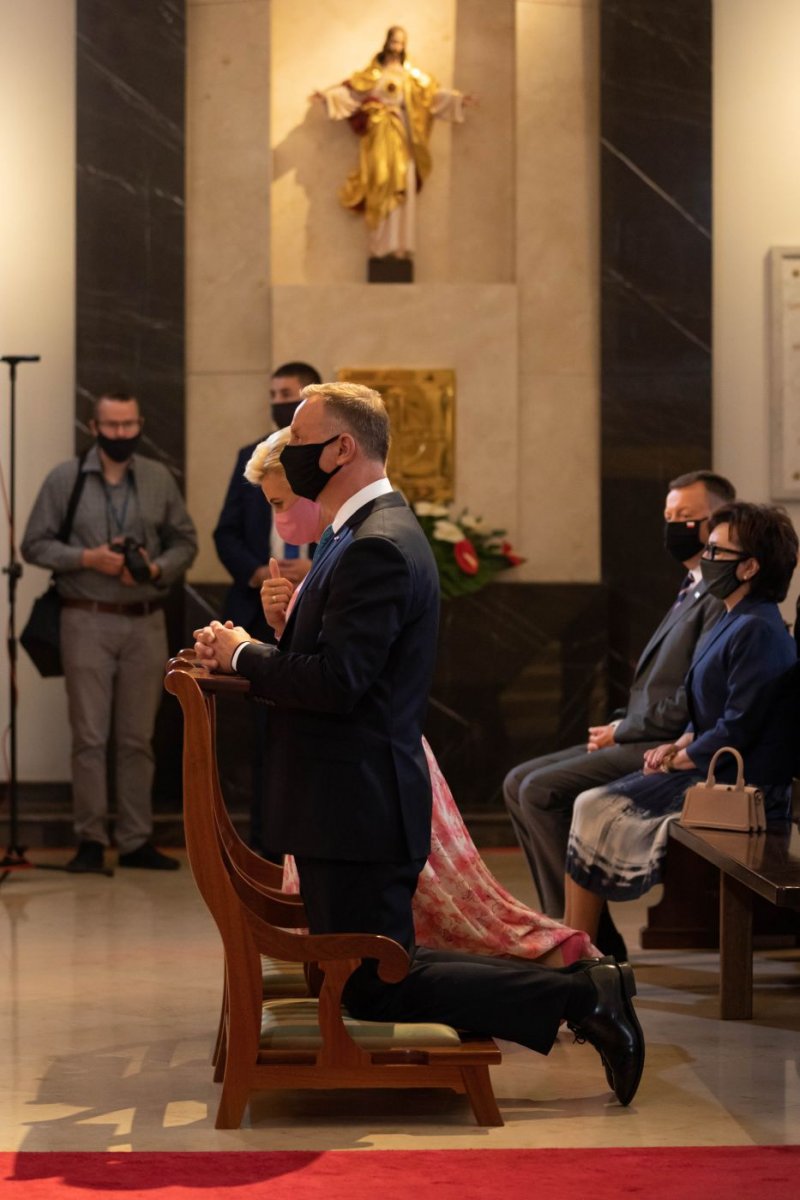At 9:00 a.m. the President of the IPN Karol Nawrocki, Ph.D. participated in a Holy Mass for the Homeland and Polish soldiers which was celebrated in the Field Cathedral of the Polish Army in Warsaw by Archbishop Gen. Józef Guzdek, Apostolic Administrator of the Field Ordinariate. The Mass marked the beginning of the celebrations of the Polish Armed Forces Day and the 101st anniversary of the Battle of Warsaw, and was attended by, among others, the President of the Republic of Poland Andrzej Duda with his wife Agata Kornhauser-Duda, the Speaker of the Seym Elżbieta Witek, Ministers, including: National Defense Minister Mariusz Błaszczak, Chief of the General Staff of the Polish Army, General Rajmund Andrzejczak, generals, officers, soldiers, military staff, veterans of peace missions, combatants and their families.
At noon, the President of the Institute took part in a ceremonial change of guards at the Tomb of the Unknown Soldier located on Marshal Józef Piłsudski Square in Warsaw. Traditionally, it is a symbolic swearing-in ceremony of honorary guards representing all types of Armed Forces to serve at the Tomb of the Unknown Soldier. The ceremony was attended by soldiers representing various types of Armed Forces, along with state officials – the President, Prime Minister, representatives of the Seym, Senate, military authorities and invited guests. The role of the honorary sub-unit was performed by the Polish Army Representative Company, and the musical setting was provided by the Polish Army Representative Orchestra. During the ceremony, a wreath was laid at the Tomb of the Unknown Soldier. The event ended with a parade.
-
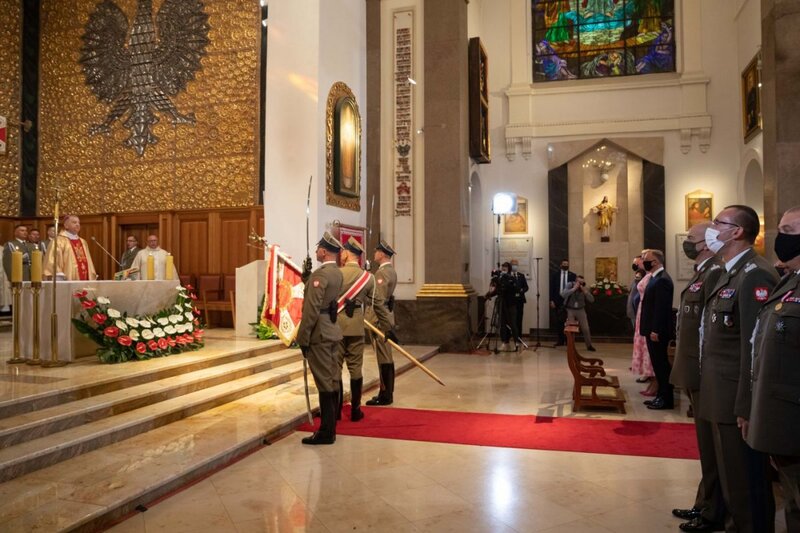
The mass in Polish Army Field Cathedral in Warsaw, 15 August 2021 -
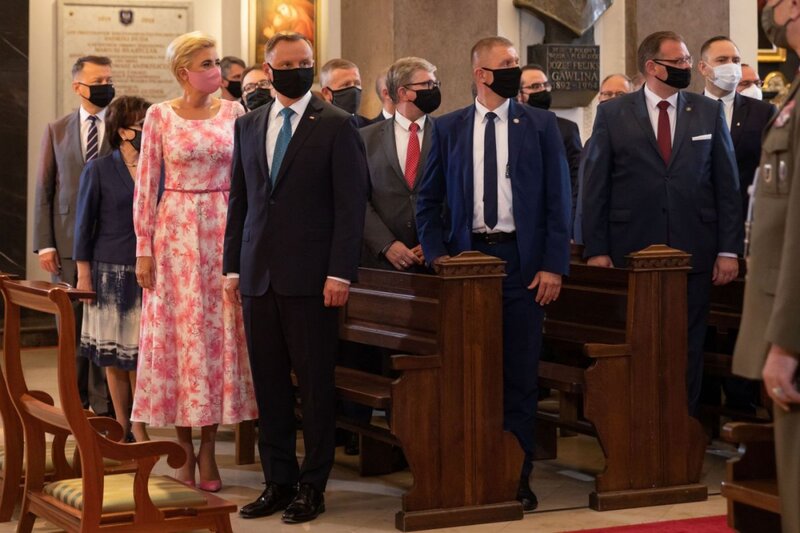
The mass in Polish Army Field Cathedral in Warsaw, 15 August 2021 -
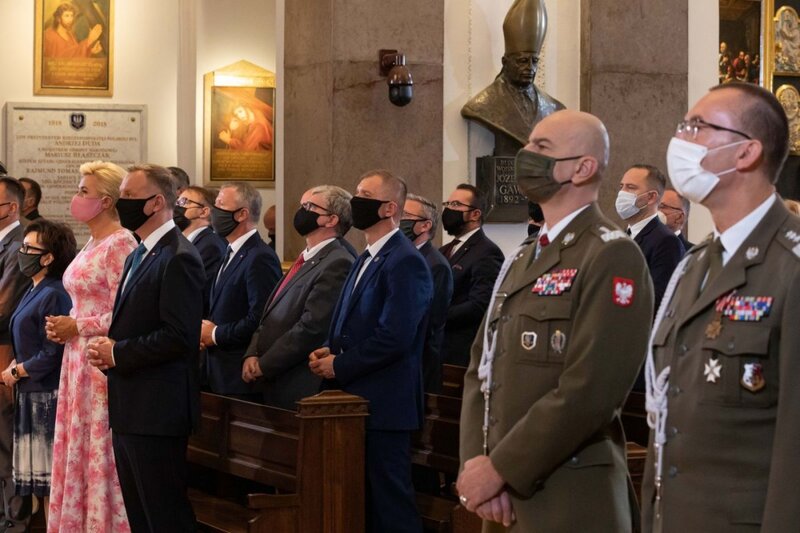
The mass in Polish Army Field Cathedral in Warsaw, 15 August 2021 -
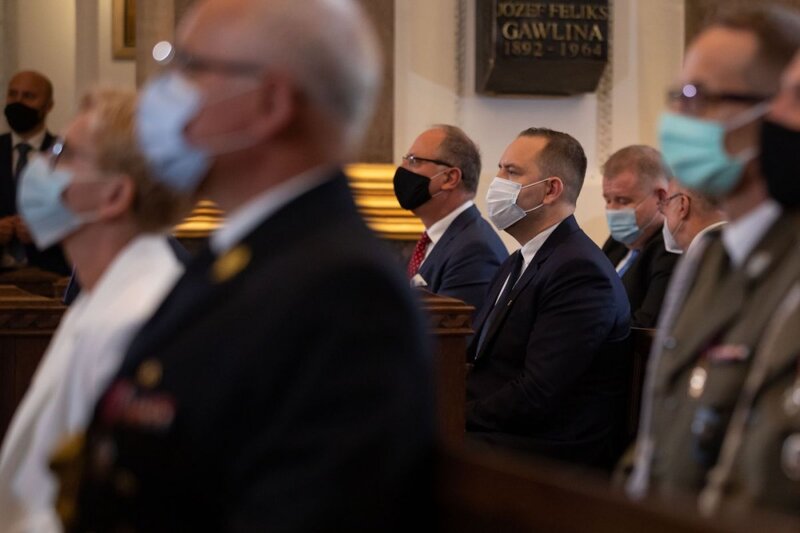
The mass in Polish Army Field Cathedral in Warsaw, 15 August 2021 -
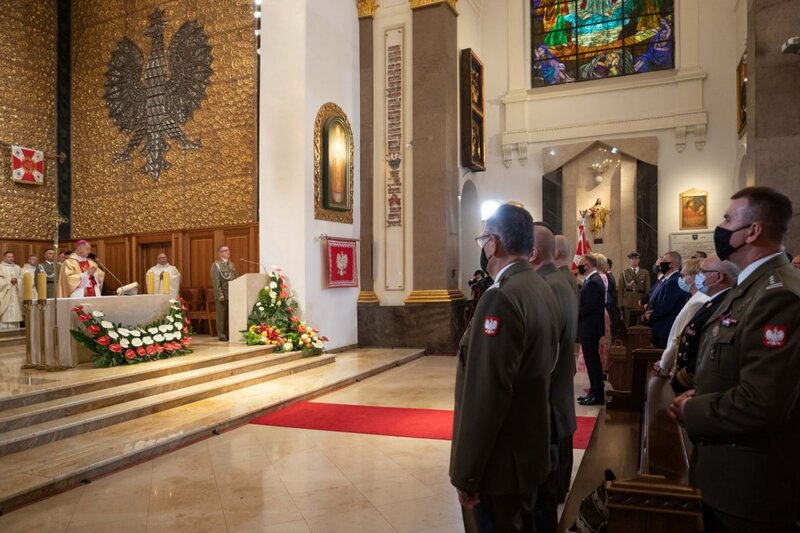
The mass in Polish Army Field Cathedral in Warsaw, 15 August 2021 -
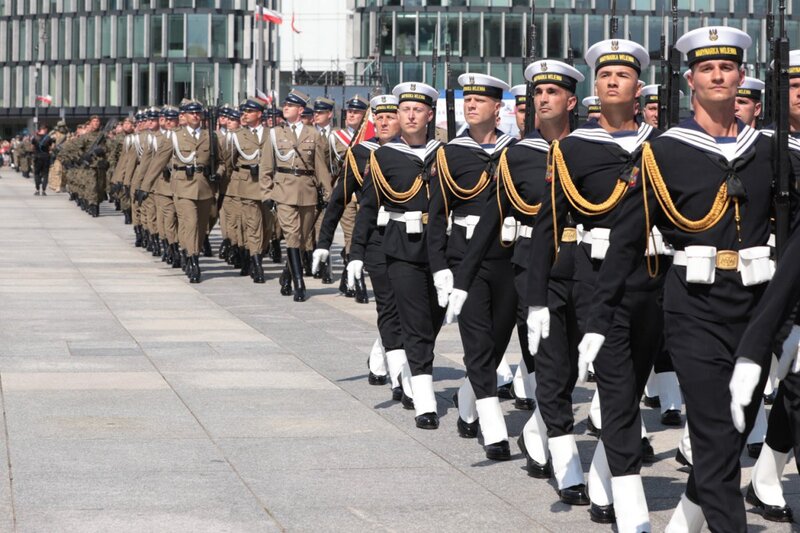
Guard change at the Tomb of the Unknown Soldier, Piłsudski Square, Warsaw -
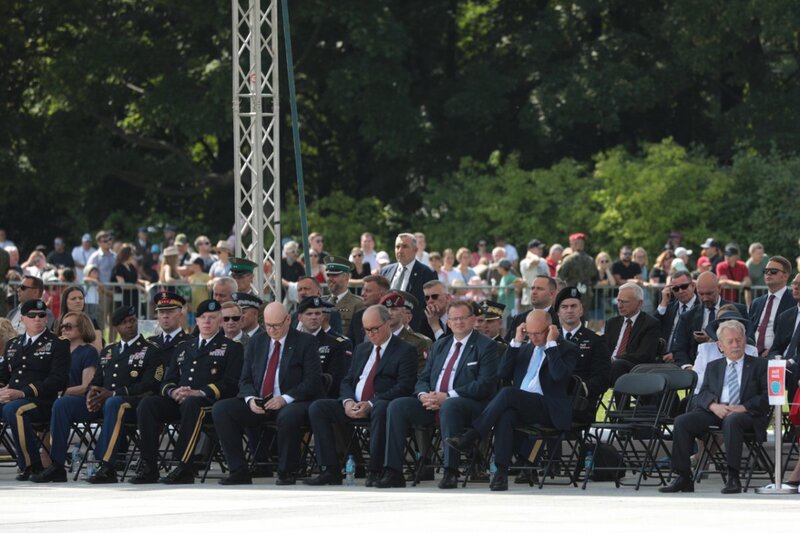
Guard change at the Tomb of the Unknown Soldier, Piłsudski Square, Warsaw -
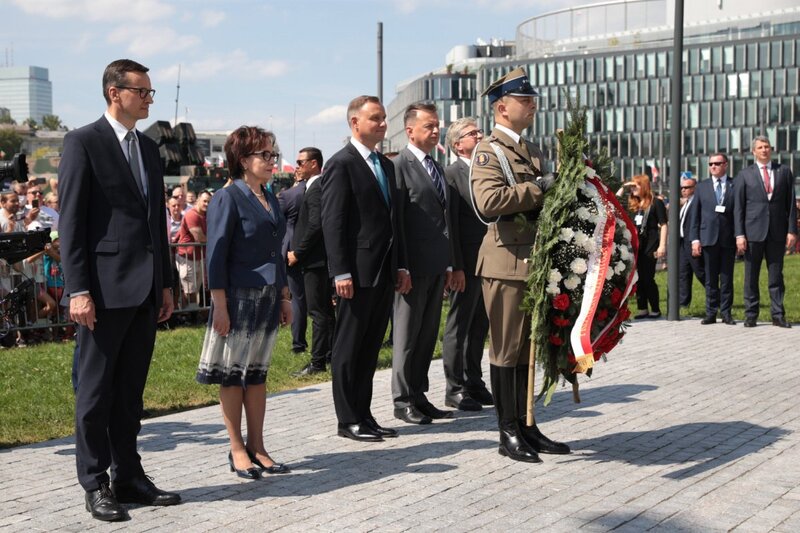
Guard change at the Tomb of the Unknown Soldier, Piłsudski Square, Warsaw -
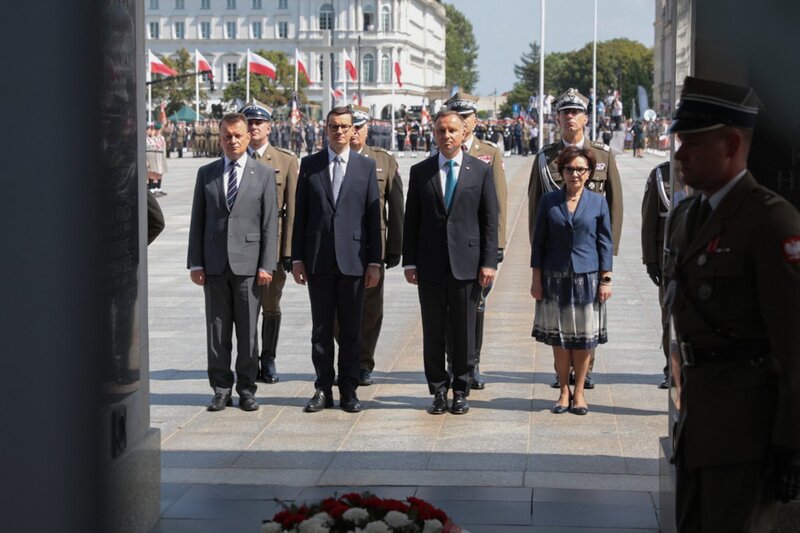
Guard change at the Tomb of the Unknown Soldier, Piłsudski Square, Warsaw -
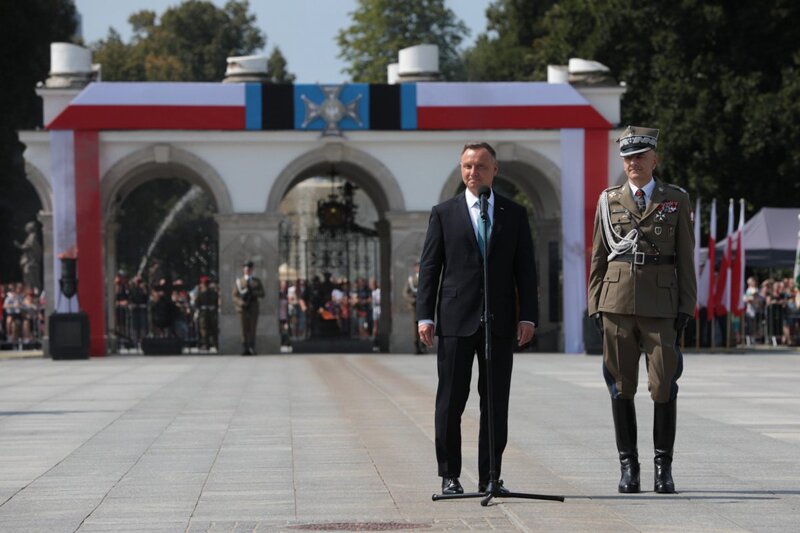
Guard change at the Tomb of the Unknown Soldier, Piłsudski Square, Warsaw -
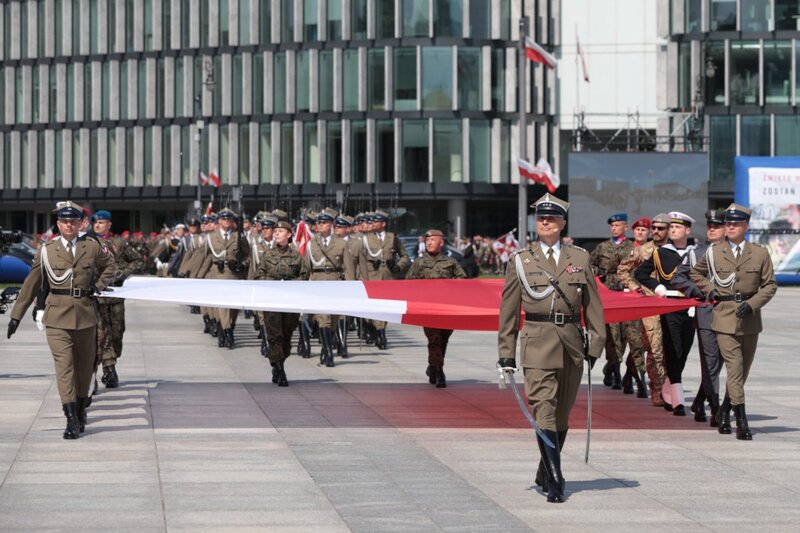
Guard change at the Tomb of the Unknown Soldier, Piłsudski Square, Warsaw -
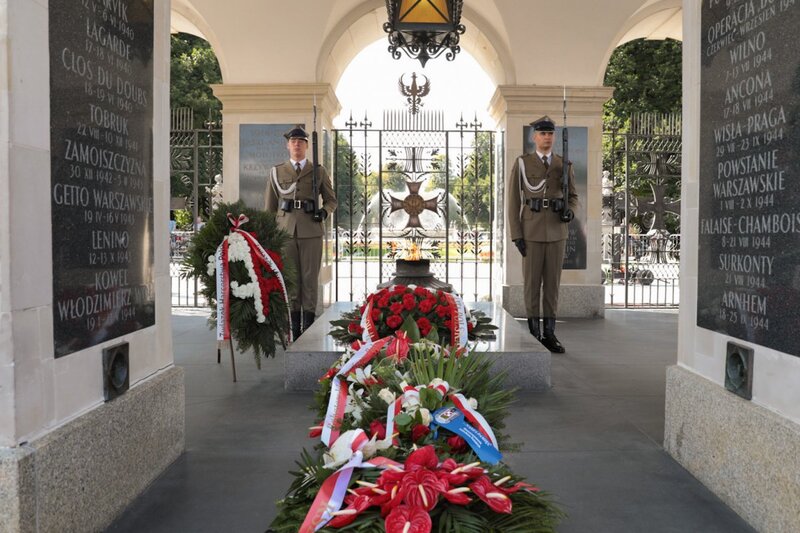
Guard change at the Tomb of the Unknown Soldier, Piłsudski Square, Warsaw -
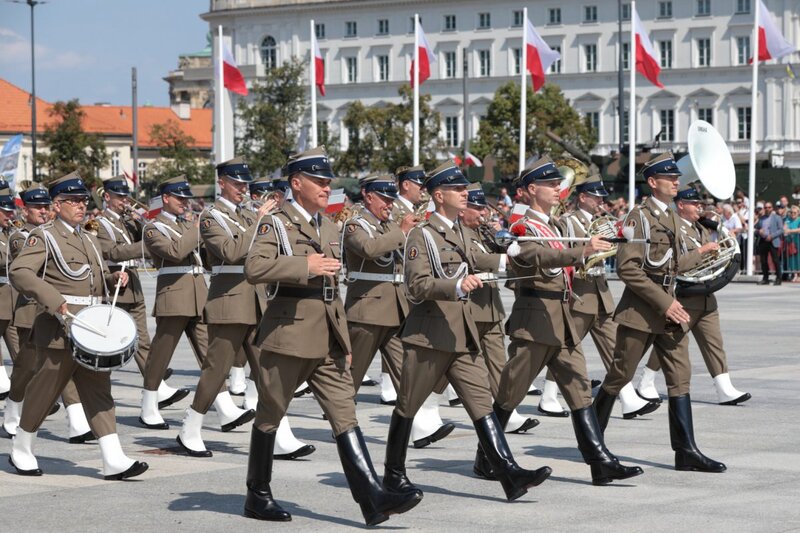
Guard change at the Tomb of the Unknown Soldier, Piłsudski Square, Warsaw -
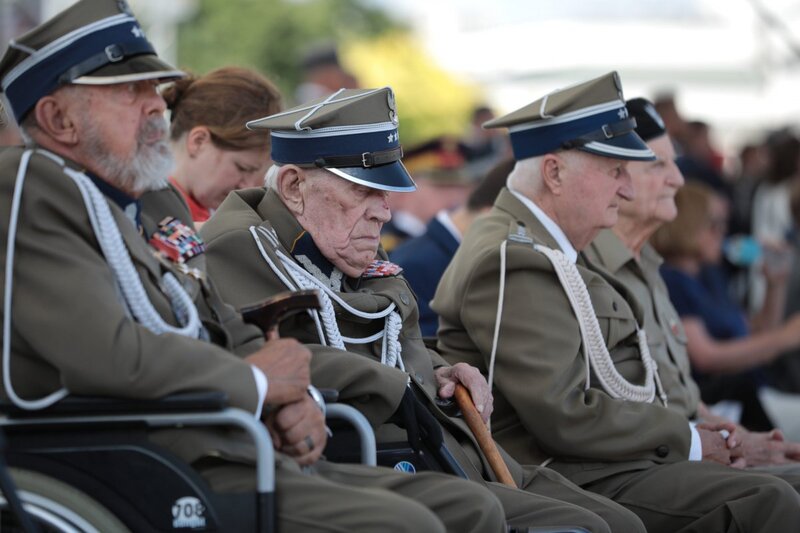
Guard change at the Tomb of the Unknown Soldier, Piłsudski Square, Warsaw -
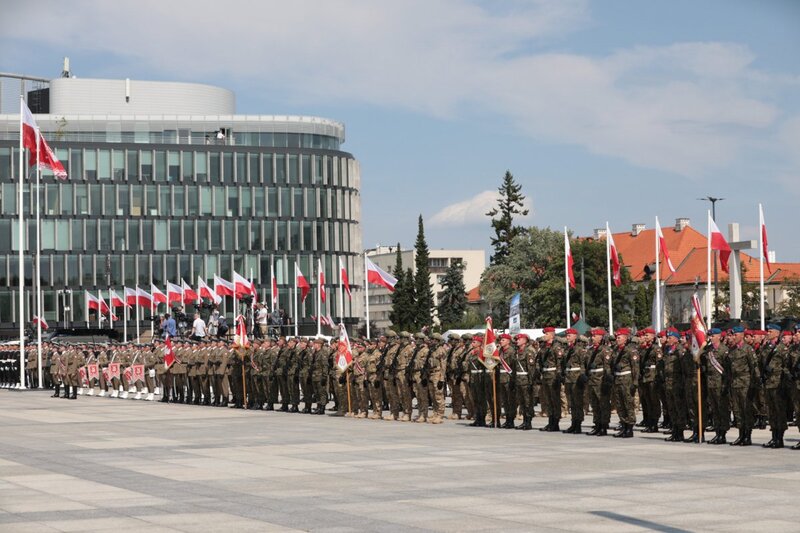
Guard change at the Tomb of the Unknown Soldier, Piłsudski Square, Warsaw
On 14 August, the eve of the main celebrations, the heroes of the battle with the Bolsheviks were commemorated with a call of remembrance at the Warsaw Powązki Cemetery. At the Monument to the Fallen in 1920, flowers were laid and candles lit by, among others, President of the Republic of Poland Andrzej Duda, Speaker of the Parliament Elżbieta Witek, and Defense Minister Mariusz Błaszczak, and with them, representatives of the clergy, army and scouts. The Institute of National Remembrance was represented by Deputy President of the Institute of National Remembrance Mateusz Szpytma. On the same day, late in the evening, Deputy President Mateusz Szpytma participated in the roll call of the fallen at the cross commemorating Father Ignacy Skorupka in Ossów - the place where over 100 years ago the course of the Battle of Warsaw turned, and where the young chaplain perished.
-
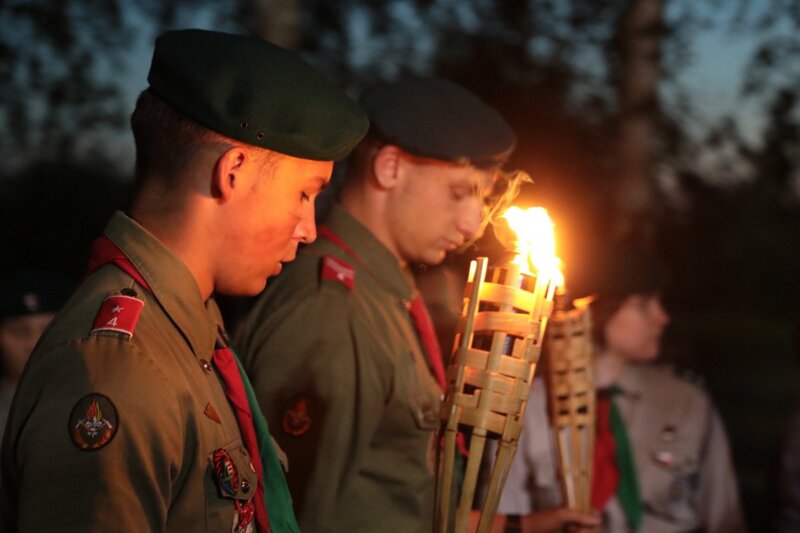
Call of Remembrance at the Powązki Military Cemetery, 14 August 2021 -
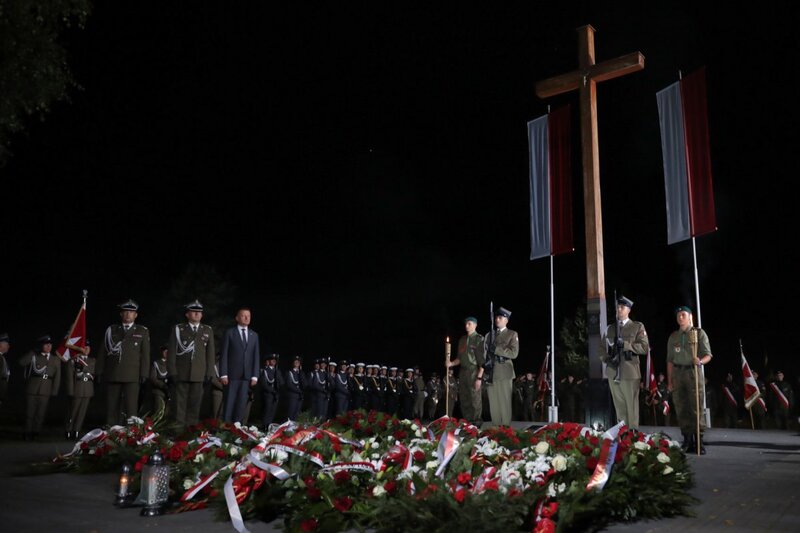
Call of Remembrance at the Powązki Military Cemetery, 14 August 2021 -
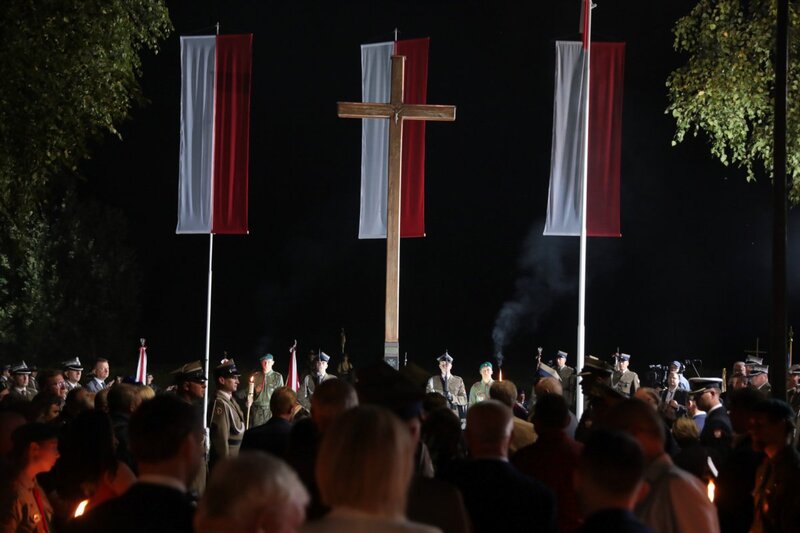
Call of Remembrance at the Powązki Military Cemetery, 14 August 2021 -
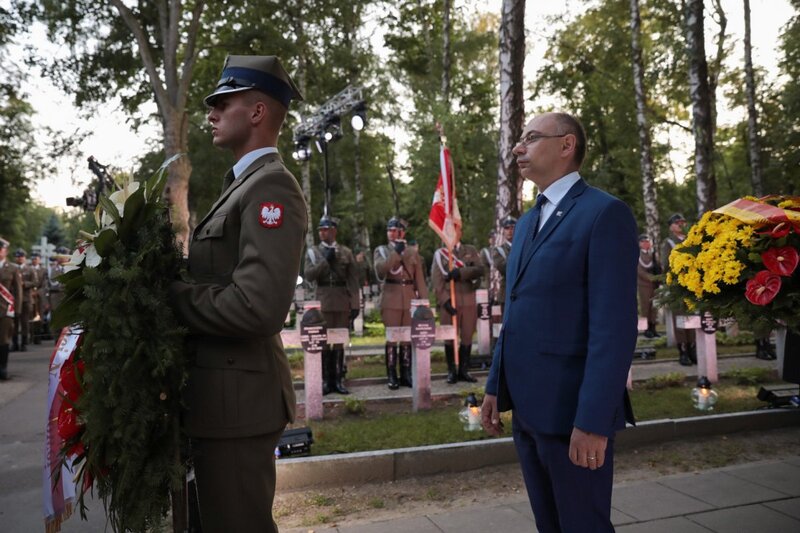
Call of Remembrance at the Powązki Military Cemetery, 14 August 2021 -
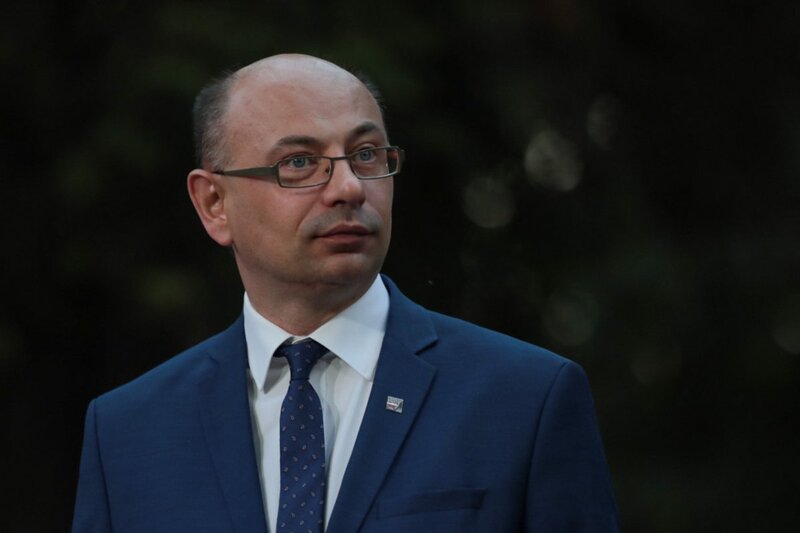
Call of Remembrance at the Powązki Military Cemetery, 14 August 2021 -
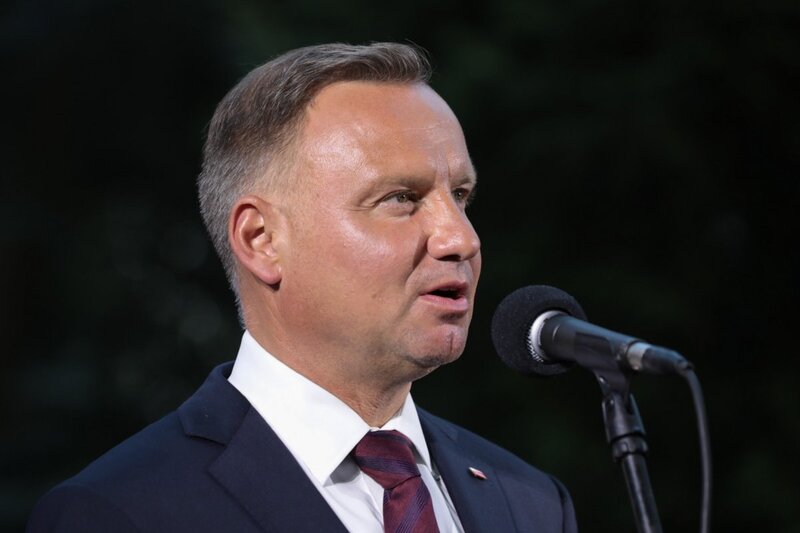
Call of Remembrance at the Powązki Military Cemetery, 14 August 2021 -
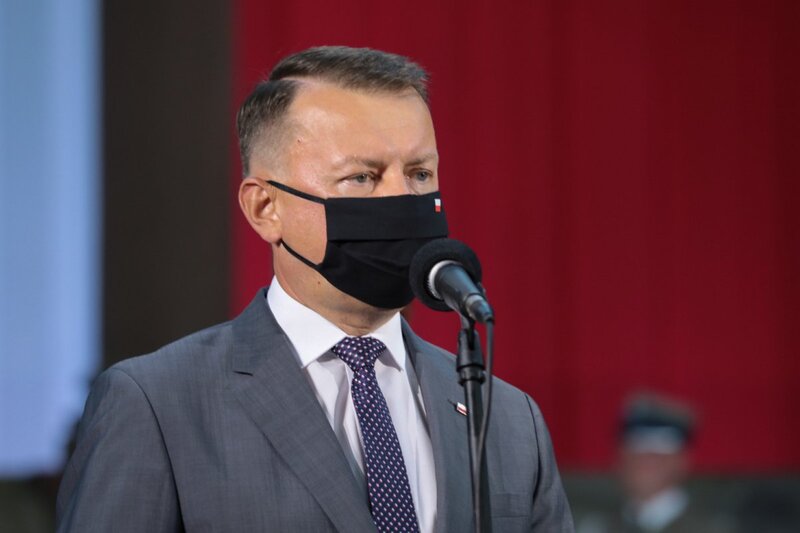
Call of Remembrance at the Powązki Military Cemetery, 14 August 2021 -
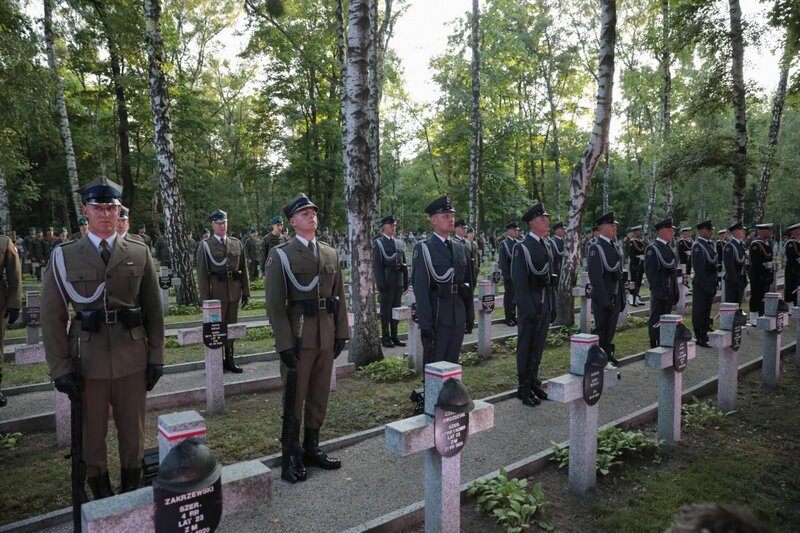
Call of Remembrance at the Powązki Military Cemetery, 14 August 2021 -
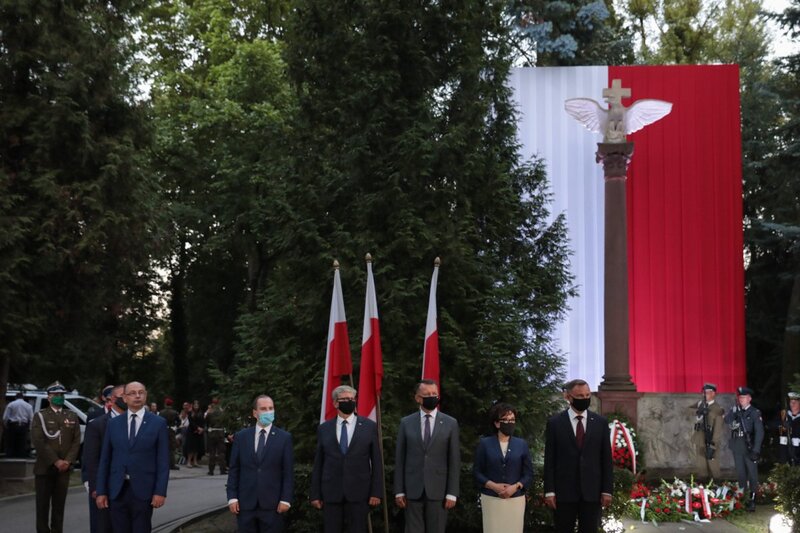
Call of Remembrance at the Powązki Military Cemetery, 14 August 2021
In August 1920, the entire Polish society was united in the defense of independence against the Bolshevik invasion, showing outstanding solidarity and forgetting about antagonisms. Thousands of people volunteered to join the Polish Army, donated money, and demonstrated their support for the authorities. The war against the Bolsheviks became a clear example of how, in the situation of danger to the state, every single effort counted.
Meanwhile, the Bolsheviks approached Warsaw. On 13 August 1920, fighting began at Radzymin and Ossów, where Father Ignacy Skorupka, chaplain of the 36th Infantry Regiment of the Academic Legion died a hero’s death. Three days later, the Polish Army under the command of Marshal Józef Piłsudski launched an offensive from the Wieprz River, supporting the defenders of the capital who fought near Radzymin. The Poles won a great victory, and the Bolsheviks began their chaotic retreat.
The Battle of Warsaw was recognized as the eighteenth most important battle deciding the fate of the world, because the Poles stopped the Bolshevik advance to the West. In 1923, 15 August was chosen as the Polish Army Day, to be celebrated every year. The festival was cancelled by the communists after WWII, but restored in independent Poland.
